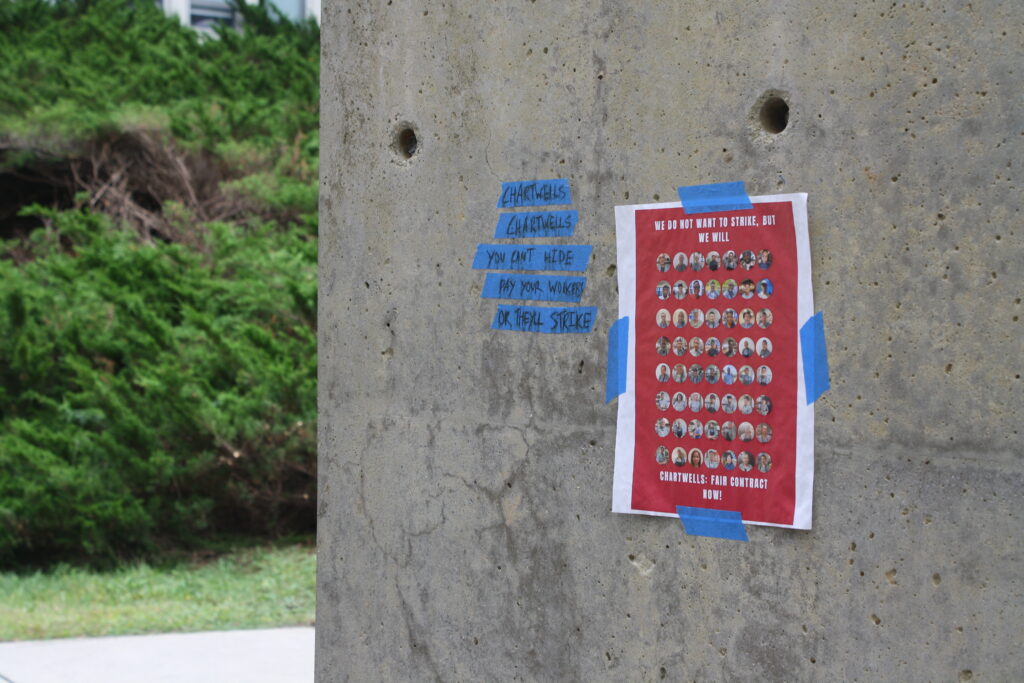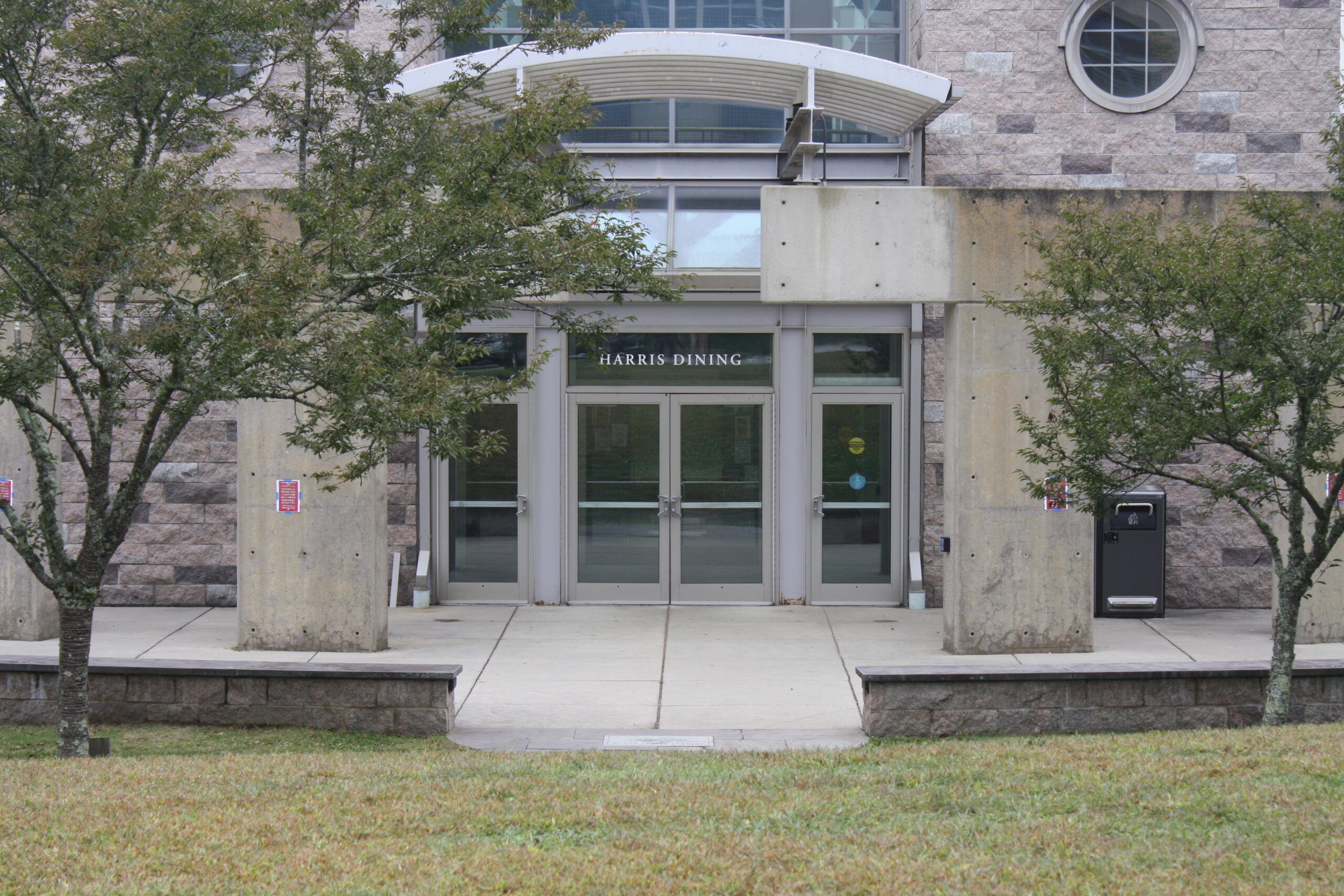Courtesy of Amelia Racicot ’27
Following a delay in negotiations earlier this month between Chartwells and unionized dining workers, posters of Connecticut College dining staff began to circulate campus the week of September 23. These posters read: “We do not want to strike, but we will– Chartwells: fair contract now!” Although, last December, 92% of the dining staff voted to unionize with Local 217, meetings to finalize their contract with the new dining company are still in progress.
Workers and students held a small meeting and demonstration on Tuesday, September 24 to discuss next steps and chant inside and outside Harris Refectory for a swift and fair contract. The hour-long demonstration acted as a brief strike to bring student, faculty, and administrative attention to staff complaints and obstructed negotiations. Though similar to last December’s campus-wide protest, this demonstration was attended by a much smaller group of staff members and students. By Thursday, negotiations were moving forward again and conversations for a contract were underway.
“We’ve been in conversation with Chartwells and we have bargaining next week, and we’re hopeful that we’re on the path to a great deal,” said Sheryl Allen-Varcianna, Dining Service Assistant at Conn.
While some students may be confused as to why there are still protests nearly a year after the December’s protest and the College recognition of the union, bargaining for a contract is often not a quick process. For example, this past July, an Apple store in Towson, Md. became the first Apple store in the US to successfully unionize. However, this process of organizing and securing a contract with Apple was not as easy as it may sound. “We’ve been bargaining for like 18 months,” union organizer Kevin Gallagher told CBS. “We won our union election two years ago, the whole campaign started like three years ago, so it’s really a long time coming.” Though it may not take as long as 18 months for a contract to be negotiated between Chartwells and the dining union organized by Local 217, this helps to explain why a contract has not yet been successfully negotiated.

Courtesy of Amelia Racicot ’27
This process of negotiation, known as collective bargaining, is where a group of employees seek to gain not only better pay, but also health benefits, working conditions, job security, and hours among other benefits. Chartwells, like other employers in the US, is required by the National Labor Relations Act of 1935 to bargain with a representative of the group in good faith.
This dining staff union was unionized through the help of Local 217, a chapter of the national labor union, UNITE HERE, which represents roughly 300,000 workers across the United States and Canada in the hotel, gaming, food service, manufacturing, textile, distribution, laundry, transportation, and airport industries. Although this would mark the first time a contract is signed between the union and Chartwells at Connecticut College, Chartwells and Local 217 are both familiar with collective bargaining negotiations. In the state of Connecticut, Chartwells oversees dining at multiple colleges, including at NESCAC peers Trinity College and Wesleyan University and many other companies. Chartwells has successfully negotiated contracts at several unionized workplaces in the past, including by working with Local 217.
While some students may wonder why dining staff have only in the past year decided to unionize, the idea has been around for a while. As reported last February, several dining staff workers first thought of unionizing during the COVID-19 pandemic in 2020. During the pandemic, dining staff were designated as ‘essential workers’ and required to work without the possibility of earning hazard pay, which is defined by the US Department of Labor as additional pay for performing hazardous duty or work involving physical hardship. Combined with general safety concerns and the low hourly pay, many dining staff members quit, which led to understaffing and longer hours for those who remained.
Low hourly wages was mentioned as a driving factor in unionizing last February. With little opportunity to gain increased pay, the highest earning employee was reported as having a wage of $20 per hour in February. With the average cost of monthly rent rising by 4.2% in the last year to $1656, some workers began working second jobs. A concrete unionization effort finally occurred last December amid job safety concerns following an email sent out by the College’s Human Resources office discussing the office’s consideration to outsource dining.
Chartwells remarked on union communications: “We have been negotiating in good faith with the union to reach a new collective bargaining agreement for the benefit of our associates.”










